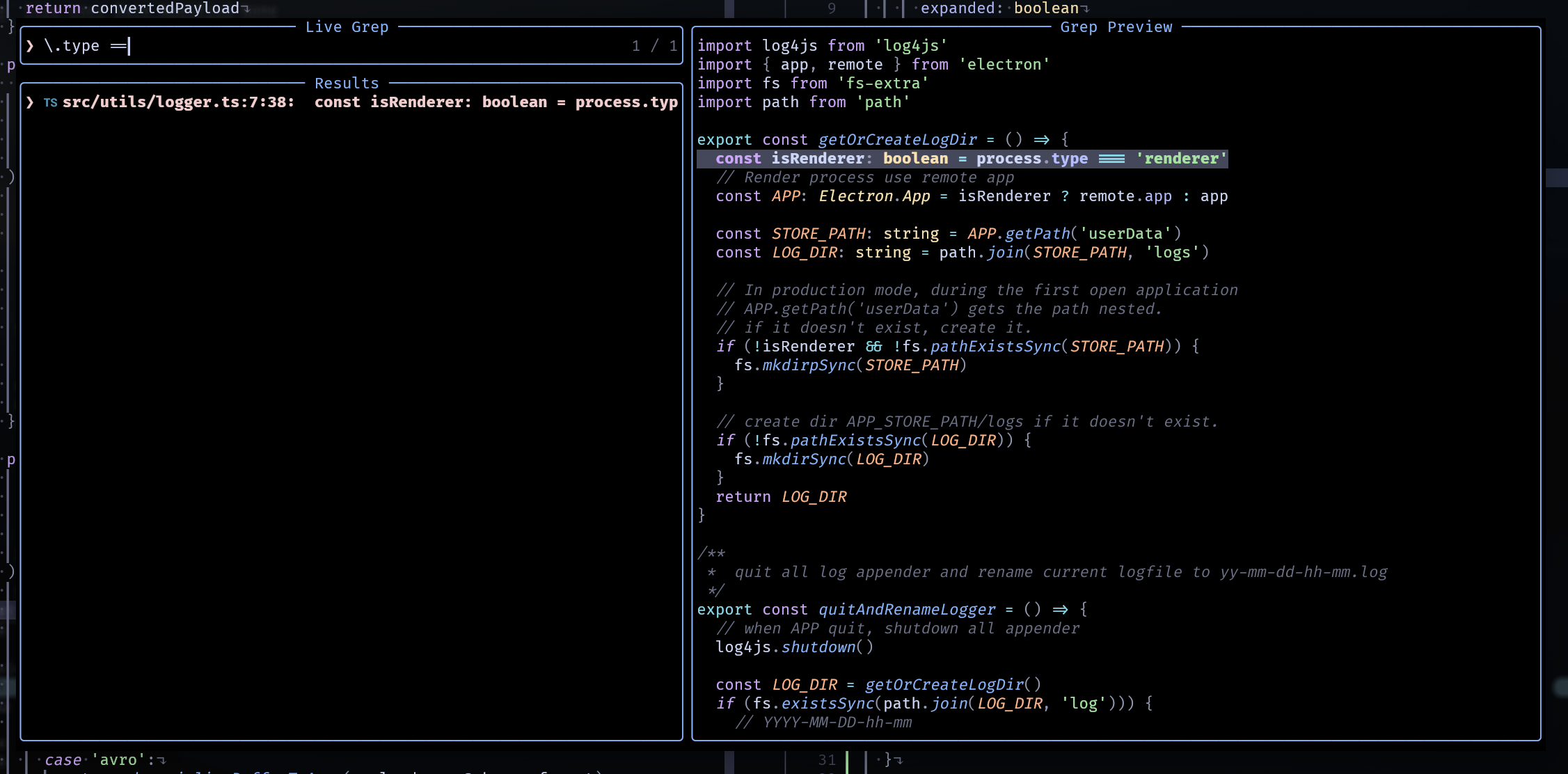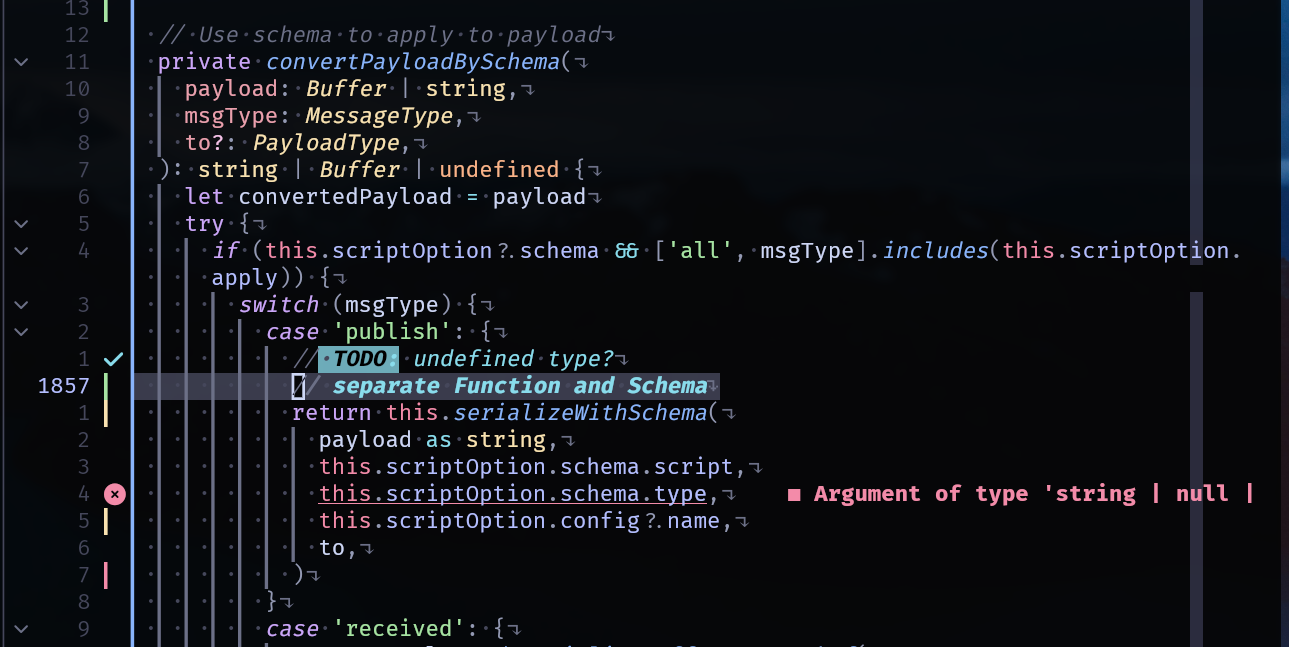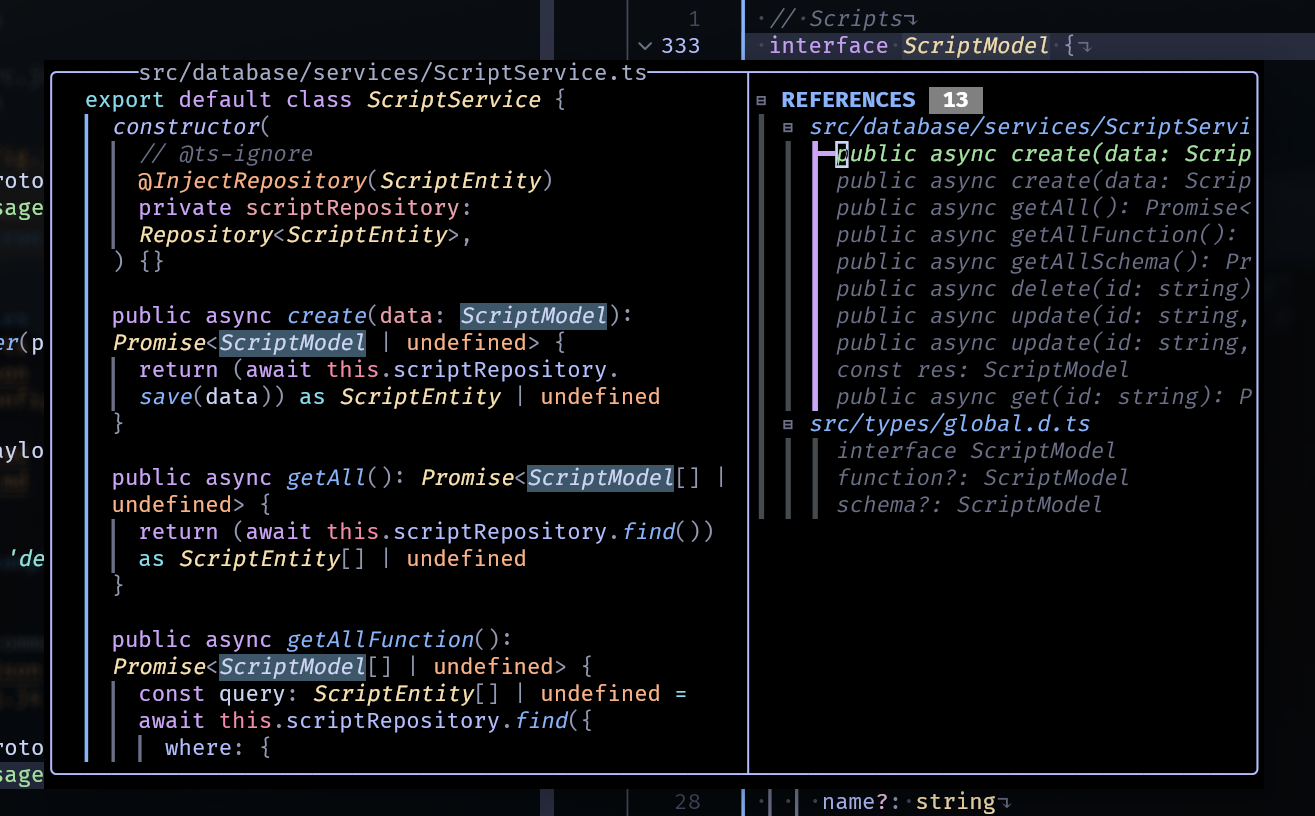
阅读 MQTTX 项目:Desktop 【1】

特意声明的 ‘null’
注意到在全局类型声明中的
ScriptModel:1
2
3
4
5
6interface ScriptModel {
id?: string
name: string
script: string
type?: string | null
}末尾处
type?: string | null对于type成员的类型声明,既然冒号前已经有了代表该成员可有可无的问号,为何还需要特意声明一个null?此外,在项目中还发现了许多已经带有问号标示的成员类型中特意声明了
null的情况,甚为奇怪。
使用 telescope-fzf 插件寻找对于该类型的判断未果:

未定义的参数
在
src/utils/protobuf.ts中可以看到这样一个函数:1
2
3
4
5
6
7
8
9
10
11
12
13
14
15
16
17
18
19
20
21
22
23
24
25
26export const deserializeBufferToProtobuf = (
payload: Buffer,
proto: string | undefined,
protobufMessageName: string | undefined,
to?: PayloadType,
): Buffer | string | undefined => {
if (proto && protobufMessageName) {
try {
const root = protobuf.parse(proto).root
const Message = root.lookupType(protobufMessageName)
const MessageData = Message.decode(Buffer.from(payload))
const err = Message.verify(MessageData)
if (err) {
throw new SyntaxError(`Message deserialization error: ${err}`)
}
if (to) {
return Buffer.from(JSON.stringify(MessageData.toJSON()))
}
// return MessageData
return protobufMessageName + ' ' + printObjectAsString(MessageData)
} catch (error) {
let err = transformPBJSError(error as Error)
throw new SyntaxError(err.message.split('\n')[0])
}
}
}可以看到,其参数部分:
1
2
3
4
5
6
7
8
9export const deserializeBufferToProtobuf = (
payload: Buffer,
// HERE:
proto: string | undefined,
// HERE:
protobufMessageName: string | undefined,
to?: PayloadType,
// HERE:
): Buffer | string | undefined => {对于
proto(raw schema) 和protobufMessageName的类型约束居然允许undefined出现,这让我感到有些不可思议:这两个参数对于 Protobuf 的解码是必须的,既然都要调用这个解码函数了,不应该由上层代码(在参数输入时)来保证这两个参数的有效性么?此外,这两个参数如果其中出现了一个
undefined,代码居然没有设计任何报错的机制,任由函数平滑退出,返回另一个undefined,颇为奇异。该函数返回
undefined后,调用其的上层代码还需要额外进行验证:1
2
3
4
5
6
7
8
9
10
11
12// ...
const result = deserializeBufferToProtobuf(
Buffer.from(Message.encode(Message.create(content)).finish()),
proto,
name,
)
// HERE:
if (!result) {
return ''
}
return result.toString()
// ...因此我认为,该参数的类型不应允许
undefined出现。至于其验证,应由上层代码完成。
摩西分海: ScriptModel 和 ScriptState 的拆分
注意到,当前的 MQTTX 类型声明中将所有的
script作为同一个 interface:1
2
3
4
5
6
7
8
9
10
11
12
13
14
15
16
17
18// Scripts
interface ScriptModel {
id?: string
name: string
script: string
type?: string | null
}
interface ScriptState {
apply: MessageType
function?: ScriptModel | null
schema?: ScriptModel | null
// config of function/schema
config?: {
// protobuf name
name?: string
}
}这种类型定义十分不利于后续 avro 编码类型的添加,因为其中许多的成员都可为 absent(undefined) 的状态。
另外,按照在 cli 部分中的开发经验来看,不光这二者应当被分开,Schema 部分也需要进一步细分为 Protobuf 和 Avro,由此可以发挥 TypeScript 的优势并完善类型检查。

在修改
src/views/script/index.vue组件的过程中,我已经将ScriptList类型拆分成了FunctionList与SchemaList两种类型,但是此处的ScriptModel与ScriptState在整个项目中的应用非常广泛(见下图),贸然修改可能会造成许多意想不到的 bug,所以我想应该在开始动手重构该部分之前询问一下意见。我个人倾向于将其全部拆分。
数量众多的 Reference:

- Title: 阅读 MQTTX 项目:Desktop 【1】
- Author: Last
- Created at : 2024-09-03 22:37:10
- Link: https://blog.imlast.top/2024/09/03/reading-mqttx-3/
- License: This work is licensed under CC BY-NC-SA 4.0.